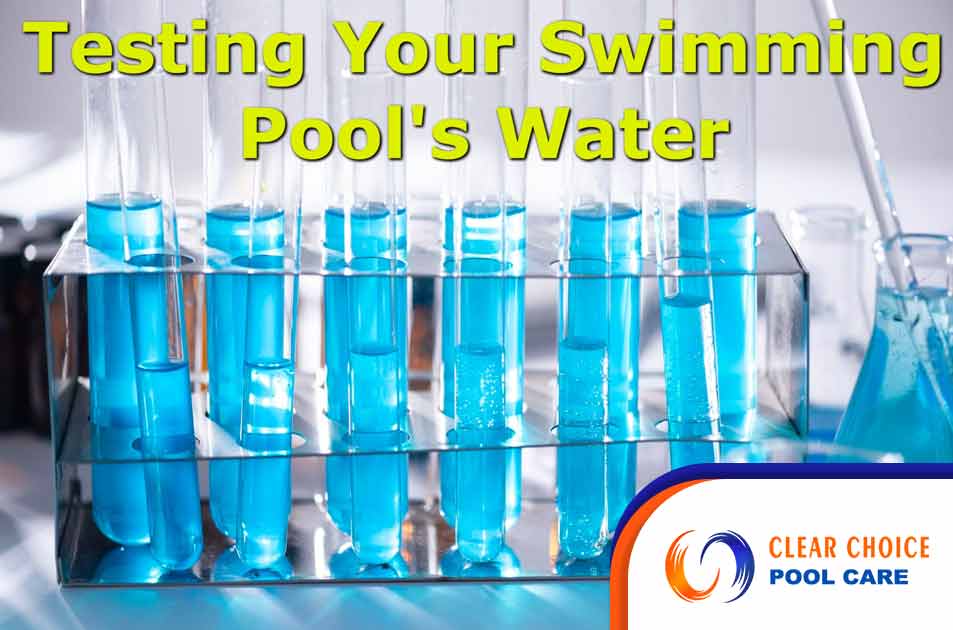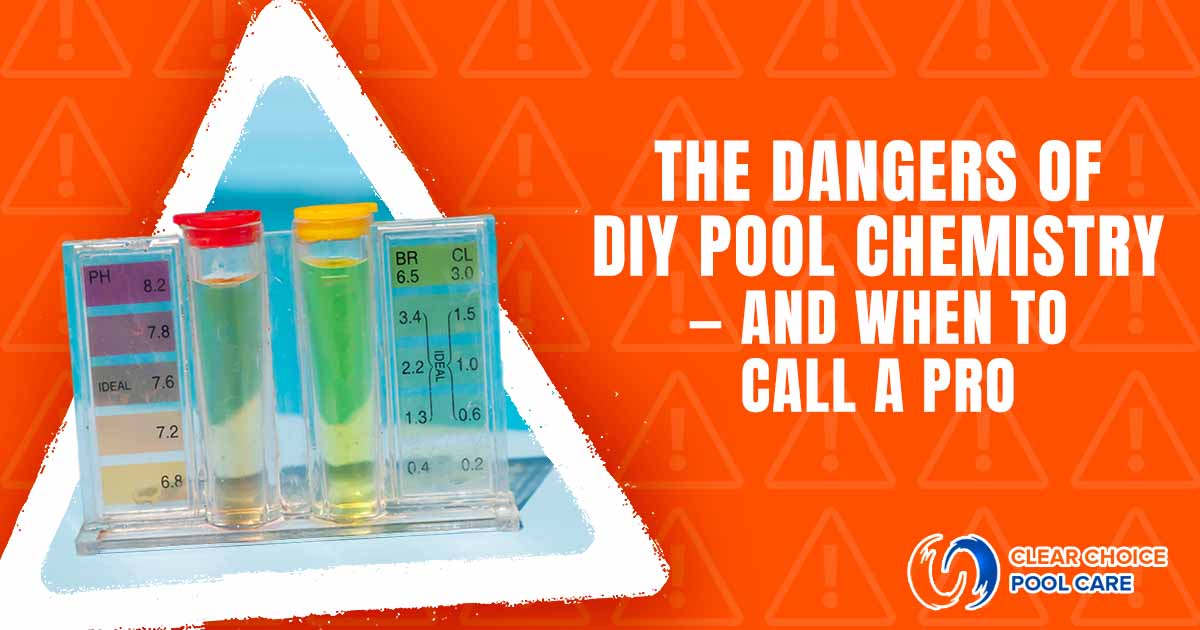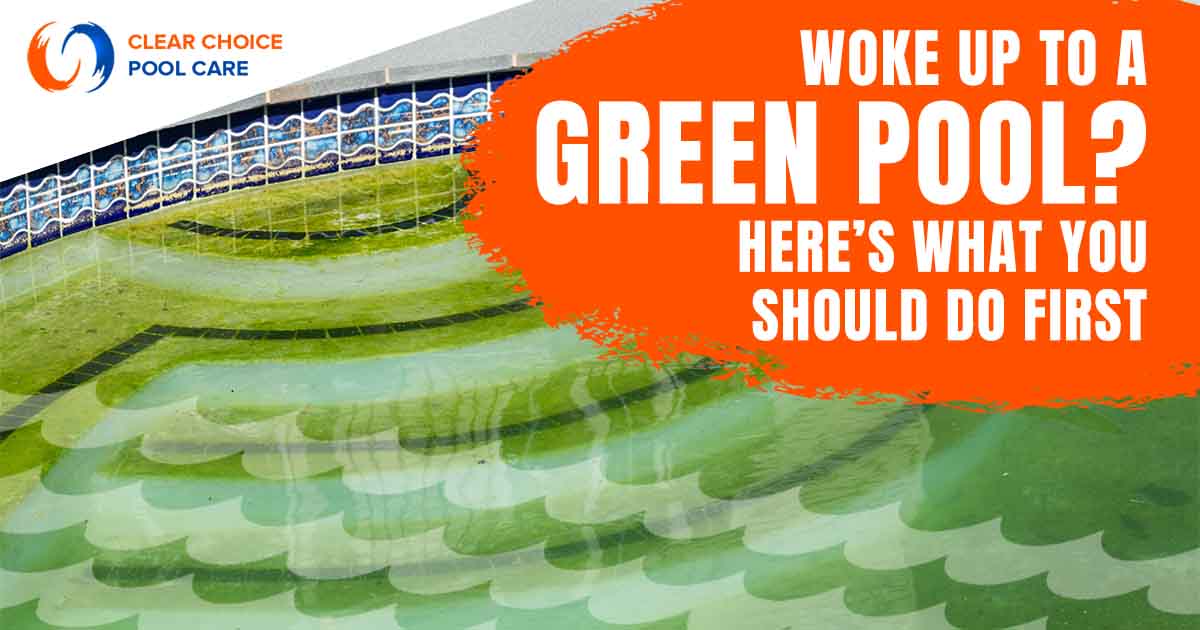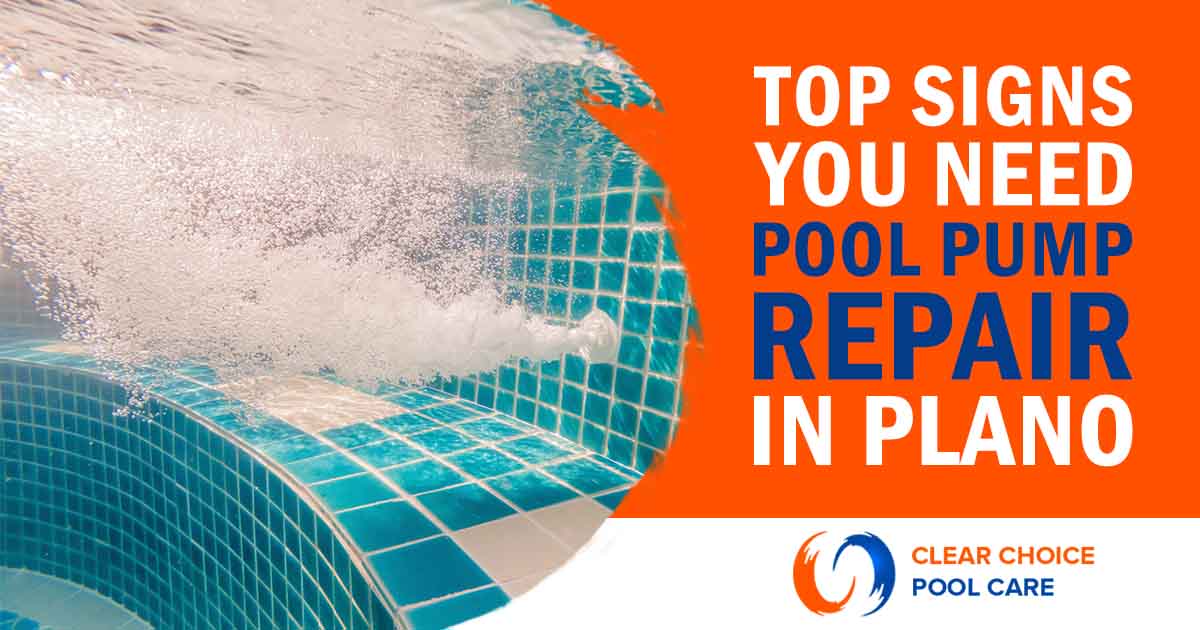Knowing how to test swimming pool water is an important part of being a pool owner, but where do you begin? There are many different chemicals and substances to test for to achieve clear and pristine pool water. Unbalanced pool water can be a problem for many reasons. If your pH is high or low, your pool’s water could cause damage to mechanisms that keep you pool running properly. The task may seem daunting and overwhelming, but with a little help, it’s definitely possible!
What Levels Do I Test Swimming Pool Water For?
When you go to test swimming pool water, the best way to start is by knowing what exactly you’re testing for. There are three main levels you should be testing regularly. Those levels are pH, chlorine, and alkalinity. Pool pH is a measure of how acidic or basic your water is. Having proper pH levels deters bad things from growing in your pool’s water that can cause infection in swimmers. Chlorine also helps to keep your pool clean, but too much of it can irritate swimmer’s skin.
The alkalinity level relates to a pool’s pH level and helps to maintain a constant and steady pH that doesn’t fluctuate much. The other levels you should try to test the water for are water hardness, cyanuric acid, and total dissolved solids. Water hardness indicates how much calcium is built up in your water. Excess levels of calcium can cause scale buildup on the sides of your walls. Too little calcium, however, can cause damage to plaster and grout.
Cyanuric acid is a chlorine stabilizer that will help your water maintain a constant level of chlorine for longer. Finally, total dissolved solids are a measure of all the substances in your pool. A high total of dissolved solids reading indicates there might be a potential for algae growth or too much microscopic debris in your water. It’s also important to note that if you have a saltwater pool, you will need to test salinity as well.
What Should the Range of Levels Be When I Test Swimming Pool Water?
To test swimming pool water, it’s important to make sure you know what range each of the levels you test for should fall in. The best way to determine this is to follow your pool’s specific needs stated in the owner’s manual, but sometimes there’s no owner’s manual. In that case, you should be okay with keeping your pool between certain generalized ranges. For pH, most pools are okay between 7.2 and 7.6.
Chlorine levels should be around 2 parts per million and shouldn’t go higher than 4 parts per million. Alkalinity should stay between 80 and 120 parts per million. The calcium level to test for water hardness should be between 200 and 400 parts per million. Cyanuric acid can be between 80 and 100 parts per million. Finally, total dissolved solids should total around 1,200 parts per million. If you keep these levels maintained, your pool should always stay clean and healthy.
How to Test Swimming Pool Water
There are many different variables to consider when you test swimming pool water. To start you can test pH using three methods. The cheapest method is to use pH testing strips, which can be found in most stores. All you need to do is dip them in the water and wait for it to change color. Then, compare the color of the strip to the color that is on the reading guide of the strip container.
If you want to get more scientific, you can use an electronic pH tester or a pH testing kit. Both are a little more expensive but give more accurate readings. For chlorine, the same methods used to test pH are available. Whichever you choose, make sure they are to test chlorine and not pH. You can test alkalinity by using strips or a test kit. Just make sure to follow the instructions for either one you choose. Like the other levels, three methods exist to test calcium levels. The most effective method is to use an electronic device, but any of them will work. The most common way to test cyanuric acid is with a dropper test kit. And finally, you will need an electronic device to test total dissolved solids.
Weighing the Pros and Cons of Way to Test Swimming Pool Water
Clear Choice Pool Care finds that choosing what you’re most comfortable with is the best option to choose to test swimming pool water. Test strips are the least expensive option when they’re available. They are also the easiest to use, however, they don’t always give accurate readings. For more accurate readings, you can opt for testing kits. Testing kits are a little more expensive and time consuming than strips, but they offer clearer results.
Finally, electronic devices are the most expensive option. Though they are the most expensive option, they are also the most accurate. Also, what makes them so great is that they have the convenience of using test strips. Most electronic test devices can simply be dipped into the water, and they will give a readout. Another thing to consider is that electronic testing devices will eventually pay for themselves after a couple years. Unlike strips or kits, the only thing that needs replacing are the batteries.
Clear Choice Pool Care to Test Swimming Pool Water
If you’re already tired of reading about how to test swimming pool water, then imagine doing it. Some of these levels need to be tested weekly, which can be a real bummer as a pool owner. Fortunately, Clear Choice Pool Care does weekly pool testing for cheap. Why go out and spend the money on all these strips, testing kits, and devices when you can get someone to do it for you? Our pool technicians are professionally trained so we know what to look out for. We’ll also help adjust your pool water as needed so you can spend less time testing and more time swimming.





